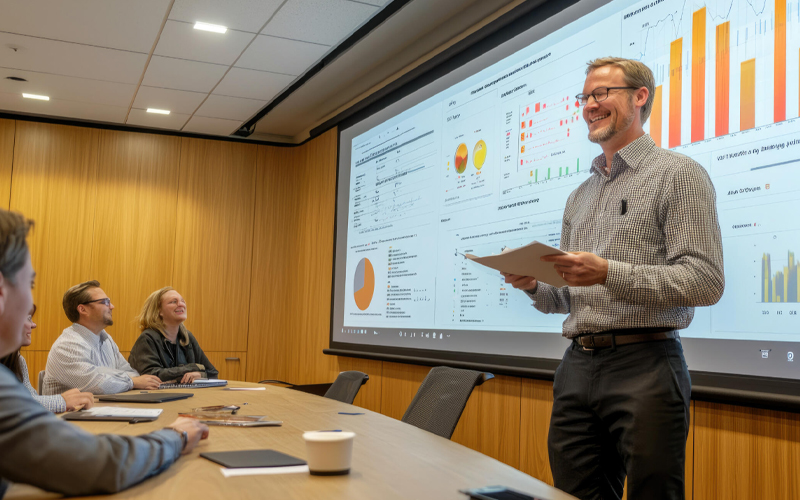If you go back in time 25 years and post a query on a browser or search engine, the results shown were often cryptic, didn’t match your query or resulted in a “404” (page not found) error. That was about the time the phrase SEO or Search Engine Optimization came to be used to signify the quantity and quality of traffic to a website from search engines. With time, SEO began to develop as a structured process to understand and deliver appropriate search results and drive user traffic to websites.
This article dwells upon 3 key pillars of SEO and offers some insights into how you can develop your web presence to improve traffic to your website and gain customers. The SEO process examines how search engines operate, what people are searching for, search terms or keywords, and user preferred search engines. The performance of an SEO process can be optimised so that a business website receives more hits or visitors and the rank of a page is improved such that the search engine results page (SERP) promotes visibility of this page to visitors. These in turn can become potential customers for a business.
Imagine you have a small business that’s providing a service to assess English language proficiency to companies hiring people in geographies where English is a non-native language. Through anecdotal conversations with potential customers, you’ve realised the need for training in English – the overarching language of business the world over. When you try to garner business, you run into challenges mainly around your digital presence. People who research you online find it hard to read your website or how you offer services, your terms of business and so on. They want to know if you are someone whom they can trust, they want to be assured that you know your product offering and most importantly, do you offer a solution that’s relevant and of value to a customer.
All these aspects are addressed satisfactorily if the three pillars of SEO - Authority, Relevance and Experience - are laid well.
Authority
The first pillar to be considered by any business is whether they are providing authoritative content. These are web pages, blog posts, videos and other content that a business posts on their website that is relevant to the visitor and of high-quality. In the example given above, a company that seeks English language assessments wants to know the standard of assessment, what kind of reports are available and recommendations on how best to train or support their employees in their English language learning journey. This means that they also look for referenceable links from this business website to other authorities or expert websites around English language learning and training. This establishes two things. The first to search engines like Google that consider it to improve page ranks and the second to establish the business or service provider as a thought leader while showing value to potential customers when they visit the website. Content should be authentic and should be mindfully crafted with the consuming audience preferences duly considered.
Authority of a page is its importance relative to any given search query. Authority is assessed like how citations, which are key to scientific publications, are assessed. The source of citations play a key role in assessing relative authority. Similarly external links provided on a business page rank the page high.
Relevance
The second pillar of relevance is about making every visit to a website count. It is by linking to other websites, as mentioned above, that search engines evaluate relevance and authority of a web page. Related content within a website can be linked such that relevant content can be accessed from any page on the website. This enables visitors to understand how content is organised, and consume it in a way that is of value to them. From the example above, imagine a site visitor finding links to standard English language assessments and how best to train their employees to become confident with business communication in English. These are highly likely to be of value to visitors in terms of relevance to what they are seeking.
Content quality stands by itself as the most important indicator of relevance of a website and its pages. With advances in natural language processing, SEO assessment tools can quickly assess the content on a page.
Traffic to a page can be increased by:
- Keywords – adding keywords to your business pages helps drive organic traffic to your website. From the example above, keywords such as business communication, language proficiency and business English are likely to improve page rank and relevance to a search engine.
- Structuring elements like different headers help search engines understand relevance, depth and coverage of a page.
Experience
The third pillar is experience, after ranking websites based on authority and relevance. Users want a “good experience” after reaching a site. Imagine a business leader trying to improve their organisation’s competency while interacting with customers by trying to find out ways to train teams to confidently communicate in English, using the appropriate business phrases and engaging customers. The business can do this by ensuring that when visitors land on their website:
- They see what they expect after typing in their search query
- The content is relevant to visitor needs and is supplemented with external links to other relevant topics
- The content is organised such that a visitor easily navigates through website pages using internal links and intuitive workflows
- Pages load quickly and content like videos and pictures render smoothly providing for a good user experience.
Search engines try to serve pages that satisfy user queries to make it as easy as possible, for users, by understanding what was being asked for. These pillars when adopted in the right manner by businesses can be of great benefit to both customers and businesses.
*For organizations on the digital transformation journey, agility is key in responding to a rapidly changing technology and business landscape. Now more than ever, it is crucial to deliver and exceed on organizational expectations with a robust digital mindset backed by innovation. Enabling businesses to sense, learn, respond, and evolve like a living organism, will be imperative for business excellence going forward. A comprehensive, yet modular suite of services is doing exactly that. Equipping organizations with intuitive decision-making automatically at scale, actionable insights based on real-time solutions, anytime/anywhere experience, and in-depth data visibility across functions leading to hyper-productivity, Live Enterprise is building connected organizations that are innovating collaboratively for the future.








